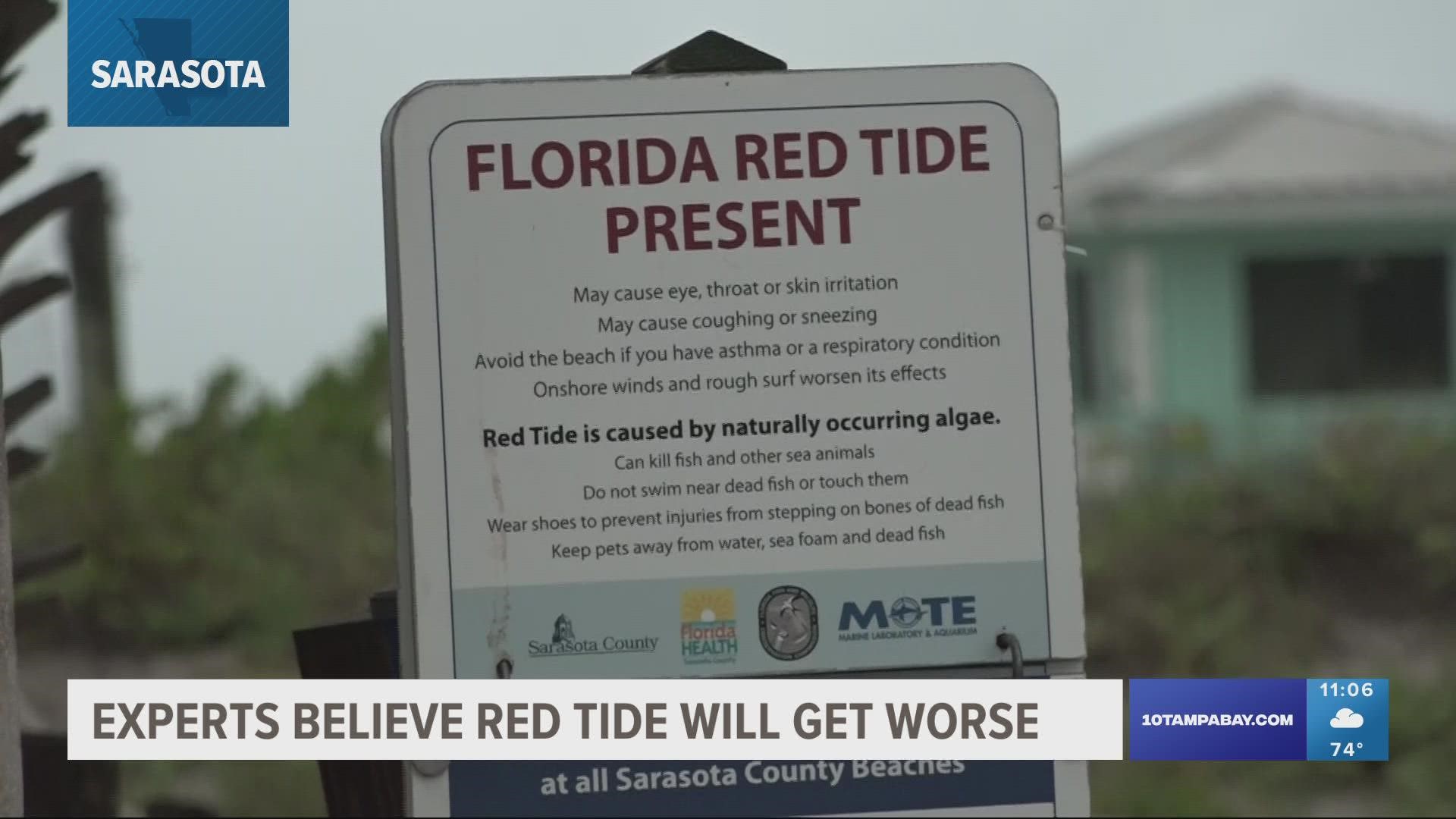SARASOTA, Fla. — Does something smell fishy to you? It could be the red tide detected at beaches all across Sarasota County.
The Florida Department of Health in Sarasota County expanded its red tide advisory after "elevated levels" of the algae were detected at all 16 area beaches.
Signs indicating the elevated red tide counts have been posted at:
- Longboat Key
- Bird Key Park/ Ringling Causeway
- North Lido
- Lido Casino
- South Lido
- Siesta Key
- Turtle Beach
- Nokomis Beach
- North Jetty
- Venice Beach
- Service Club Park
- Venice Fishing Pier
- Brohard Beach
- Caspersen Beach
- Manasota Key
- Blind Pass
The worst of it looks like it’s on Venice Beach where high levels of red tide were detected by FWC.
If you go to the beach where red tide is present, you may cough, sneeze or have your eyes burn.
Experts say do not swim if you see dead fish. They highly recommend you avoid the area until the red tide clears.
A red tide is a harmful algal bloom caused by the organism Karenia brevis. The blooms produce toxins that can kill fish and other sea life and cause respiratory issues for people who breathe in the surrounding air.
Storms and rainy weather could make red tide worse. In this case, experts said Nicole could make matters worse.
"My sense is that this red tide is likely to get a lot worse before it gets better," James Douglass, an associate professor of marine science for the Water School at Florida Gulf Coast University, said.
Douglass believes Hurricane Ian fueled the red tide bloom we are seeing.
"The hurricane introduced a ton of nutrients from the land and sea bottom into the water and the red tide is feasting on those nutrients now," he explained.
There is no way to predict red tide and experts say the organisms that cause red tide are always found in the ocean water at some small level.
People who are particularly sensitive to red tide, like those with chronic respiratory problems, are urged to avoid the beach. Health officials recommend that all beachgoers avoid harvesting, eating or swimming with distressed or dead fish and shellfish.
While it's unclear what will happen next, experts strongly believe things will get worse before they improve.
"We can never know for certain what’s going to happen but it’s like looking at dynamite and a lit match and we can make a pretty good prediction that it’s going to be explosive," Douglass stated.
To check current beach conditions, use FWC's red tide map.

